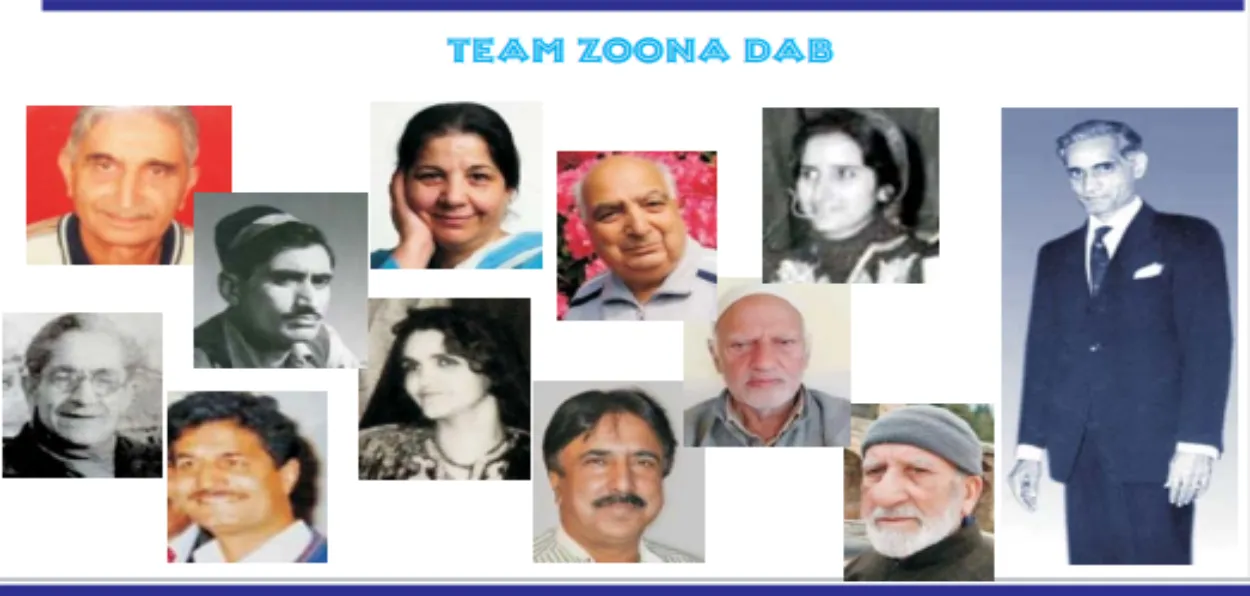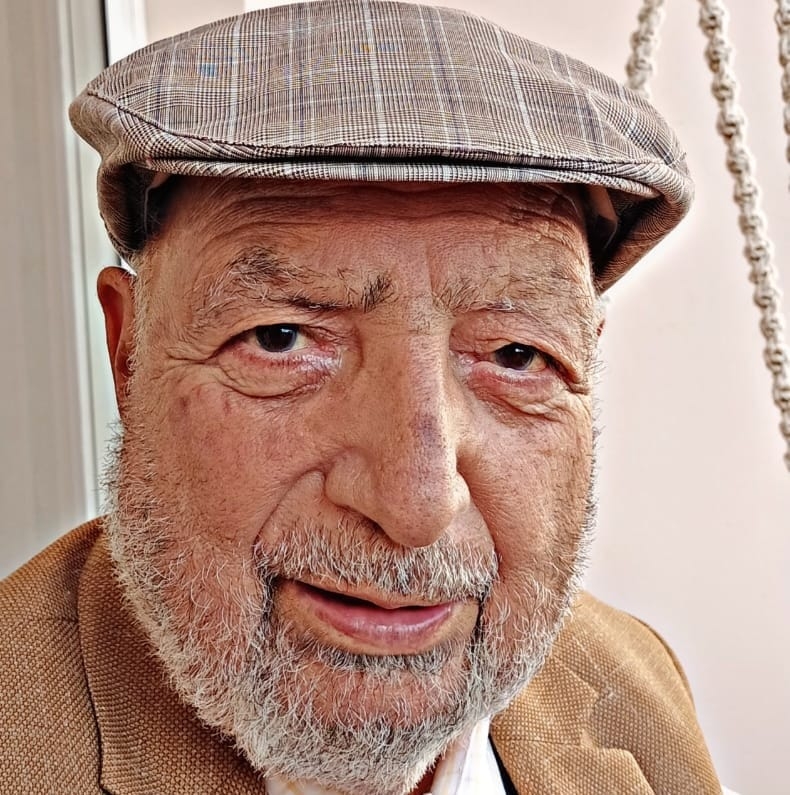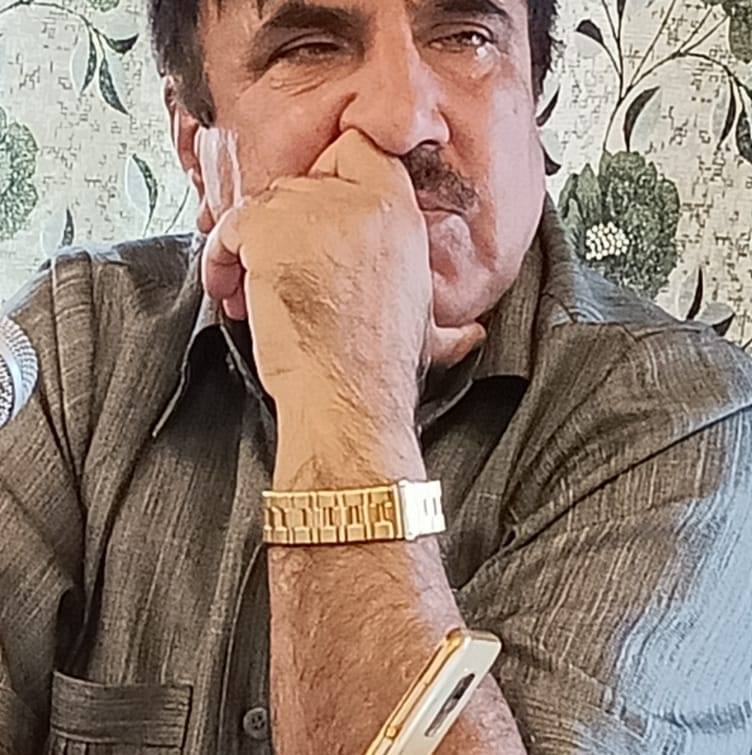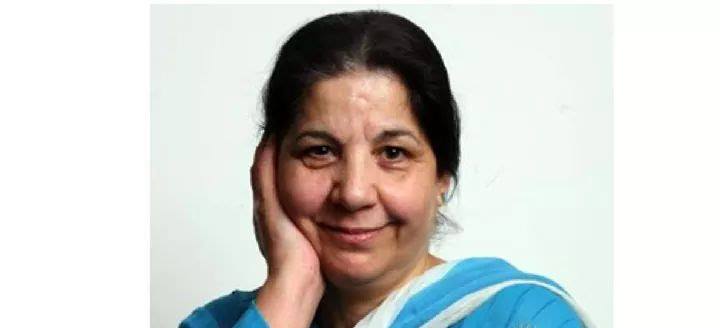
Ahmed Ali Fayyaz/Srinagar
During the Indo-Pakistan war of 1965, radio was the only medium of mass communication and information warfare. All India Radio’s Srinagar Station, which was until recently named ‘Radio Kashmir Srinagar’ was just 17 years old. In 1964, Prime Minister Indira Gandhi visited the Station and spoke with the then Director Nand Lal Chawla.
With the involvement of some local artists—both Hindus and Muslims—it started ‘Wotul Buji’, a propaganda program in the Kashmiri language to counter the well-oiled propaganda drive of Radio Pakistan in 1965.
As the war ended, Wotal Buji went off the air. According to Bashir Arif, a retired Director of Radio Kashmir Srinagar, in 1966 Chawla discussed with assistant producer Somnath Sadhu how to go about a program that would become a bridge between the public and the authorities on former's grievances and also entertain the listeners. This gave birth to the feature programme Zoona Dab.
Zoona Dab, a radion feature started on October 3, 1966, and continued for 19 years. The 15-minute recorded program went on air six days a week in the morning and became Radio Kashmir’s most popular program. Even after Doordarshan Kendra Srinagar started its telecast from Srinagar in 1972, the popularity of Zoona Dab was intact.
 Farooq Nazki (Facebook)
Farooq Nazki (Facebook)
Theatre personality MK Raina said that the State administration was not comfortable with the way ‘Zoona Dab’ exposed the officers and highlighted their bad performances but it continued to broadcast with the blessings of Director Chawla who gave a new dimension to broadcasting in India. He was responsible for bringing in public voices on the radio.
Then Chief Minister Ghulam Mohammad Sadiq directed all Government Secretaries and Deputy Commissioners to regularly listen to Zoona Dab and redress the public grievances accordingly. The dedication, commitment, and hard work of three ace broadcasters - Somnath Sadhu, Pushkar Bhan, and Marriyam Begam -who played lead roles in Zoona Dab were conferred with Padma Shri, in 1974.
Sadhu and Bhan also wrote the script for the feature. The feature was centered on a Kashmiri family where the members and the guests, shared happy moments with the public and also discussed hardships and day-to-day issues. According to Raina, anybody facing a problem in society or with the administration could walk into the producers and actors. The issues would be the next day in ‘Zoona Dab’.
Zoona Dab is usually a wood-paneled lofty balcony that often protruded from the top floor of the traditional Kashmiri houses in the 19th and 20th centuries. The inmates enjoyed the sight of the skies and the moon from the balcony and hence its ‘Zoona Dab’. (Zoon means Moon and Dab means enclosure in the Kashmiri language). Some of the big houses used to have multiple ‘moon balconies’
 .Bashir Arif (Facebook)
.Bashir Arif (Facebook)
Conceived by Sadhu’s colleague Pushkar Bhan, Zoona Dab was a domestic drama giving a new dimension to the family life in the valley. The main characters of the serial were developed to give representation to all sections of the society. Mama Pipji, the domestic help played by Bhan, was a rural character, the family head Aga Säb was an urban character and Mama's friend Ismala was a blend of both.
As per the format, usually, a guest would enter Aga Saab’s home and during routine conversation raise a public issue. The issues picked up ranged from a personal grievance like a delay pension settlement to civic problme like clogged drains or a social evil like dowry. The producers would occasionally bring concerned government officials to the program to seek answers to public grievances.
A common Kashmiri related himself with the lead couple Aga Säb and Aga Bài, their son Nazir Lala, domestic help Mama Pipji, daughter Nana Koor besides Ismala, Ramba, Sula, Säb, Sharief-ud-din, Nôsh (wife of Nazir Lala), Bhat Säb, Jaga Kak, Mokhta and some more characters who participated occasionally. Somnath Sadhu, Pushkar Bhan, Marriyam Begum, Sharif-ud-Din, Bashir Arif, Ashok Kak and Usha Nehru, all fromZoona Dab, received Sadiq Memorial Awards in 1981.
The family head, Habibullah Sahib or Habba Säb for outsiders and Aga Säb for the family members, played by Somnath Sadhu was in ultimate command of affairs along with his wife Aga Bài (Marriyam Begum). They had a son called Nazir Lala (Bashir Arif), daughter-in-law Nôsh (Usha Nehru), daughter Nana Koor (Nayeema Ahmad and domestic help Mama Pipji (Pushkar Bhan). Later, Farooq Nazki, who retired asd Director of Doordarshan Kendra, Srinagar, entered as the second domestic help when Mama was injured in a road accident.
 Nayeema Mehjoor (Facebook)
Nayeema Mehjoor (Facebook)
Somnath Sadhu joined Radio Kashmir in 1955 and died at a young age of 47 years in 1982. He wrote several radio plays and acted in two Kashmiri films, Maanzi Raat and Shayar-e-Kashmir Mahjoor.
Pushkar Bhan was also an eminent Kashmiri playwright and actor who worked in the Radio. He played a key role in Dinanath Nadim’s opera Bombur Yimbarzal as it was staged in Srinagar for the visiting Prime Minister of the Soviet Union, Nikita Khrushchev in 1956. Khrushchev walked to the stage to greet Bhan who played the lead role of Harud (Sharat).
Bhan has also been festured in the first Kashmiri film Maanzi Raat, and Balraj Sahani’s Kashmiri film Shayir-e-Kashmir Mahjoor. After receiving Padma Shri for Zoona Dab in 1974, Bhan was also conferred with the Sahitya Academy Award for radio drama serial Machama in 1976. He died in 2008.
Raj Begam, the burqa-clad woman assumed the name of Marriyam Begum to anchor the women’s weekly program, was the unanimous choice with Director Chawla for the lead role of Aga Bai in Zoona Dab. In 1974, she became the first Kashmiri woman radio artiste to receive Padma Shri.
Among other characters of Zoona Dab, Farooq Nazki (Ramba) and Bashir Arif (Nazir Lala) rose to the level of Deputy Director General in Doordarshan and All India Radio.
ALSO READ: Dilafroz Qazi set up Kashmir's 1st pvt engineering college against all odds
Nazki is a celebrated poet and television producer. Arif also wrote lyrics for Vidhu Vinod Chopra’s Shikara, a love story woven around the displacement of the Kashmiri Pandits.
Nayeema Ahmad Mehjoor (Nan Koor), served as a producer with All India Radio and the BBC for over 30 years before she was appointed Chairperson of the Jammu and Kashmir Women’s Commission in 2015.
